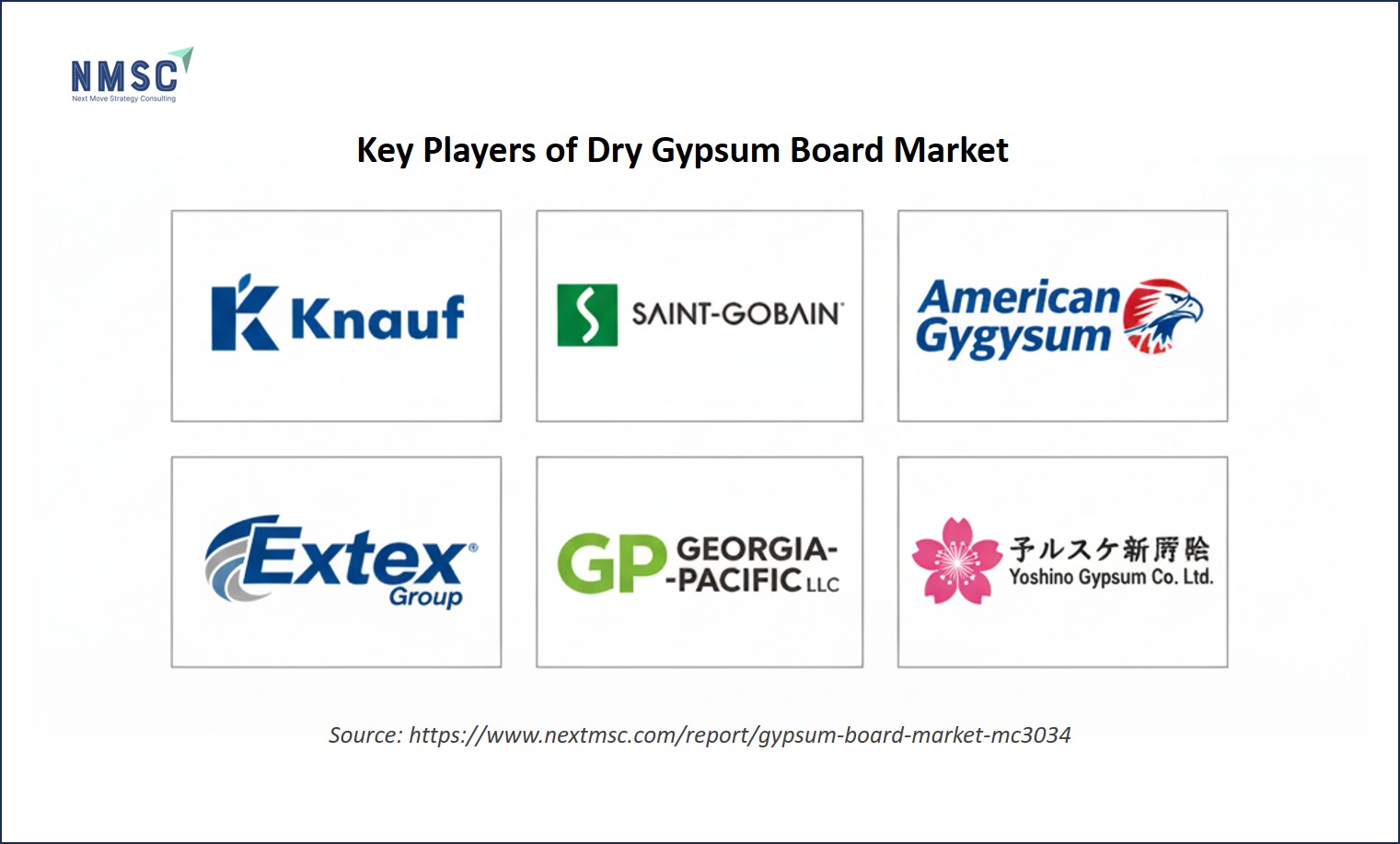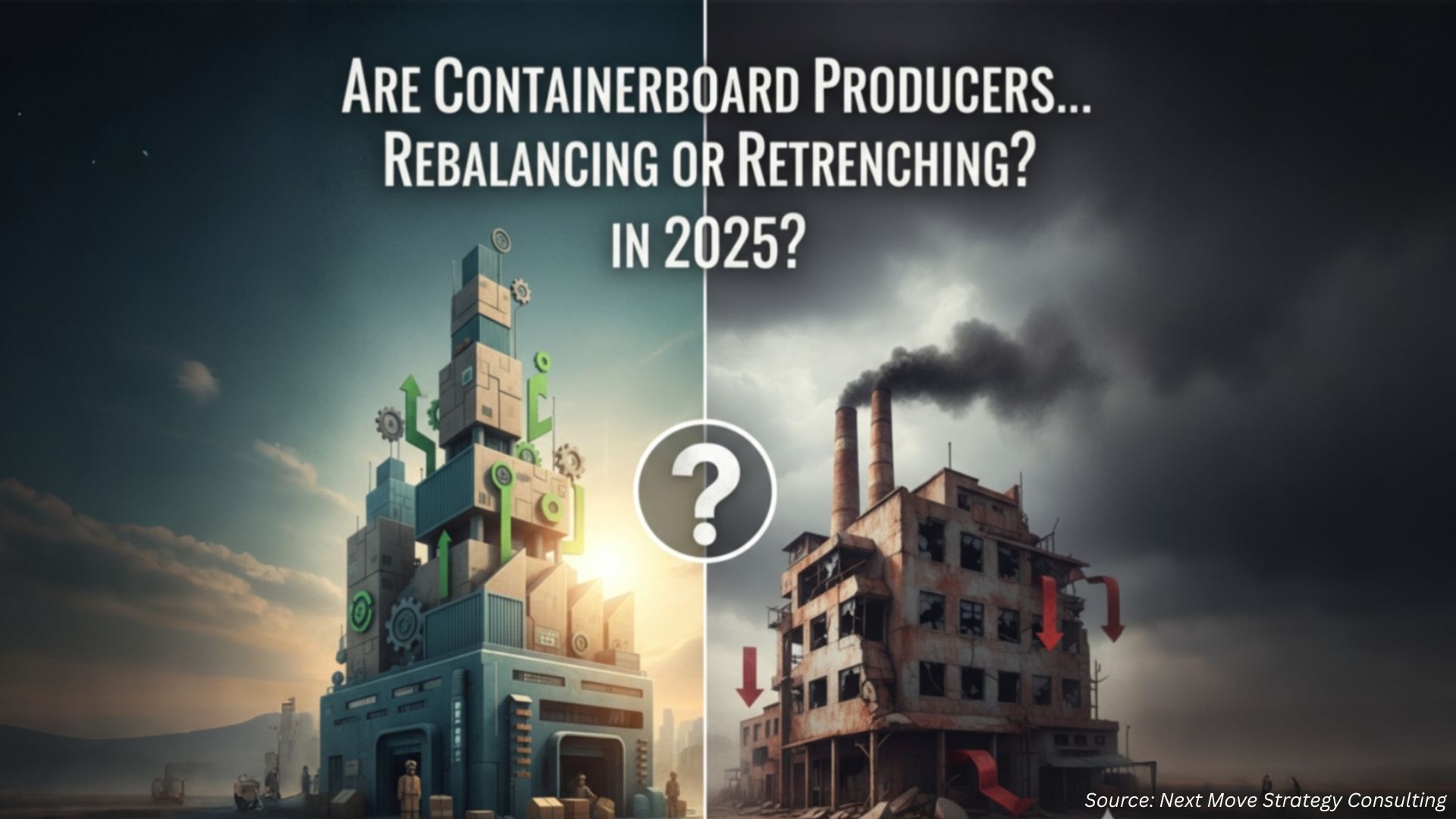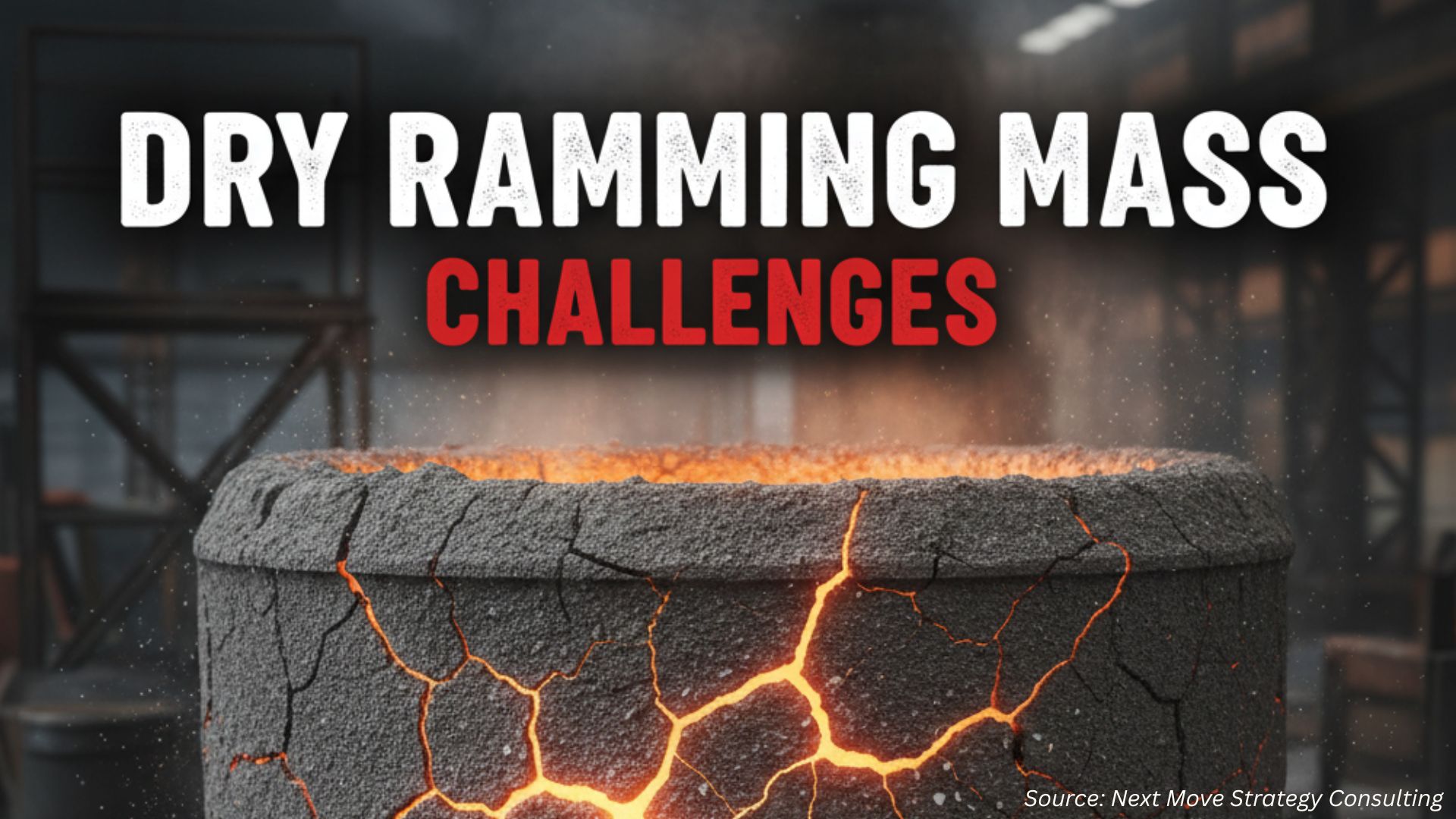What is Driving the Gypsum Board Market Today?
Published: 2025-11-13

The global Gypsum Board Market is entering a transformation phase driven by sustainability, recycling innovation, and advanced product engineering. Once viewed as a standard material for walls and ceilings, gypsum is now being reimagined for flooring, circular production, and low-carbon construction. Leading players such as Knauf India, Saint-Gobain, and Etex are setting the direction with major announcements in 2024 and 2025 that reveal how the industry is reshaping itself for a more sustainable and performance-oriented future.
How is Knauf India Reinventing Gypsum Applications with the GIFAfloor System?
In 2024, Knauf India introduced the GIFAfloor System, a next-generation dry flooring solution that marks the company’s entry into high-performance gypsum-based subfloor technology. The system uses dense, non-combustible gypsum fiber-core panels that can replace traditional wet concrete or screed floors. According to the company, this system is designed to meet the needs of modern commercial, data center, and institutional projects where speed, fire safety, and acoustic control are essential.
The GIFAfloor range comes in two configurations GIFAfloor DB Green, a raised access floor option with fire resistance of up to 60 minutes, and GIFAfloor FHB, a hollow floor system that can handle heavy loads of around 20 kN with up to 90 minutes of fire resistance and acoustic insulation near 34 dB. These modular panels allow different surface finishes such as vinyl, tile, carpet, or wood, giving architects freedom in design while reducing installation time.
What Does Saint-Gobain’s CarbonLow™ Reveal About the Future of Low-Carbon Wallboard?
In October 2024, Saint-Gobain Canada introduced CarbonLow™, a gypsum wallboard line that represents a major leap forward in reducing the embodied carbon of building materials. The company announced that the new line offers up to 60% less embodied carbon (cradle-to-gate) compared with traditional wallboards, making it one of the most environmentally advanced plasterboard products in North America.
Production will begin in 2025 at Saint-Gobain’s revamped facility in Sainte-Catherine, Québec, which will become North America’s first zero-carbon (Scopes 1 and 2) gypsum wallboard plant. This upgrade involves a complete transition from gas to electric heating, the addition of heat-recovery systems, and the installation of smart energy monitoring tools. According to Saint-Gobain, these measures will cut the plant’s energy use by roughly 30% and lower its annual CO₂ emissions by about 44,000 tons.
The CarbonLow™ product will not just be a niche sustainable option—it is set to cover Saint-Gobain’s full range of gypsum board types, such as Easi-Lite and Type X, without requiring changes in installation practices. This strategic choice positions the company to influence the broader building materials supply chain by normalizing low-carbon gypsum as a standard product category rather than a specialty line.
How is Etex Advancing the Circular Economy with 100% Recycled Plasterboard?
The drive toward circularity is taking center stage, and Etex Group has made one of the most ambitious moves in this direction. In April 2025, the company announced RECYPLAC™, the first standard plasterboard made entirely from 100% recycled gypsum, marking a breakthrough in the reuse of post-consumer construction materials.
RECYPLAC™ is being developed under the company’s Siniat brand and will be produced at Etex’s Ottmarsheim plant in France, following pilot production at Carpentras. The product, which is patent-pending, will enter the French market in July 2025. Etex emphasizes that this new board offers the same technical and aesthetic performance as traditional plasterboard while being entirely composed of recycled materials—a technical challenge that required extensive R&D investment.
Over the past six years, Etex has already increased its recycled gypsum use by 34%, and some of its facilities now produce boards with recycled content exceeding 35%. The RECYPLAC™ launch represents a logical next step in that progression, demonstrating that full-scale circular gypsum production is now technologically feasible.
How are These Innovations Reshaping the Gypsum Board Market?
When viewed together, the innovations from Knauf India, Saint-Gobain, and Etex tell a story of rapid transformation in how gypsum-based materials are designed, manufactured, and used. Knauf’s GIFAfloor expands the role of gypsum beyond walls, making it part of structural and acoustic design in commercial interiors. Saint-Gobain’s CarbonLow™ redefines gypsum board manufacturing around carbon neutrality and scalable emissions reduction. Etex’s RECYPLAC™ moves the market closer to a true circular economy by proving that 100% recycled boards can be commercially viable.
The common thread among these advancements is a focus on sustainability integrated into functionality. Each company is not just improving environmental metrics but also enhancing performance, installation efficiency, and lifecycle cost benefits. This holistic approach reflects how the gypsum board market is adapting to global shifts in construction—where carbon accounting, resource recycling, and green certifications increasingly influence material choices.
Moreover, these developments highlight the growing alignment between product innovation and regulatory trends. As more countries adopt embodied carbon reporting requirements, and as clients demand materials with verifiable sustainability credentials, the adoption of low-carbon and recycled gypsum solutions will likely accelerate. Manufacturers are already preparing for this shift by investing in renewable energy facilities, waste reclamation networks, and digital tracking systems for material origins.
What Should Industry Stakeholders Do Next?
The momentum seen in 2024 and 2025 offers clear guidance for project developers, architects, and contractors. First, it is time to rethink specification strategies. Material choices should include embodied carbon data, recycled content, and installation impact, not just fire or acoustic ratings. Second, collaboration with manufacturers will be critical. By engaging early with companies like Knauf, Saint-Gobain, and Etex, specifiers can ensure that sustainable gypsum products are available locally and can be integrated smoothly into upcoming projects.
Finally, pilot adoption will play an important role. Testing low-carbon wallboards or recycled gypsum panels in small-scale projects can help assess real-world performance, installation convenience, and supply reliability. As product lines like CarbonLow™ and RECYPLAC™ reach full-scale production in 2025, early adopters will gain valuable experience and a competitive edge in meeting new sustainability benchmarks.
Next Move Strategy Consulting View
According to Next Move Strategy Consulting, the gypsum board market is clearly shifting toward sustainability-driven growth. Recent moves by Knauf, Saint-Gobain, and Etex highlight how low-carbon production and circular design are becoming central to competitiveness.
NextMSC expects that eco-efficient and recyclable gypsum products will drive a new premium segment in the coming years, supported by green construction incentives and ESG-focused investments. Companies that adopt sustainable manufacturing early will likely gain long-term market and brand advantages as global demand for low-carbon building materials accelerates.
About the Author
 Joydeep Dey is a seasoned SEO Executive, Content Writer, and AI expert with over 2½ years of experience in digital marketing and artificial intelligence. He specializes in SEO strategy, impactful content creation, and developing data-driven, AI-powered solutions that enhance online visibility and engagement. With a strong foundation in natural language processing and emerging AI technologies, Joydeep is known for simplifying complex concepts into clear, actionable insights.
Joydeep Dey is a seasoned SEO Executive, Content Writer, and AI expert with over 2½ years of experience in digital marketing and artificial intelligence. He specializes in SEO strategy, impactful content creation, and developing data-driven, AI-powered solutions that enhance online visibility and engagement. With a strong foundation in natural language processing and emerging AI technologies, Joydeep is known for simplifying complex concepts into clear, actionable insights.
About the Reviewer
 Sanyukta Deb is an accomplished Content Writer and Digital Marketing Strategist with extensive expertise in content strategy, SEO, and audience engagement. She specializes in building strong brand visibility through data-driven campaigns and impactful, value-added researched content. With a passion for creativity and innovation, she blends strategic thinking with design and communication to craft meaningful digital experiences. Over the years, she has contributed cross-functional marketing projects, driving measurable impact and audience engagement.
Sanyukta Deb is an accomplished Content Writer and Digital Marketing Strategist with extensive expertise in content strategy, SEO, and audience engagement. She specializes in building strong brand visibility through data-driven campaigns and impactful, value-added researched content. With a passion for creativity and innovation, she blends strategic thinking with design and communication to craft meaningful digital experiences. Over the years, she has contributed cross-functional marketing projects, driving measurable impact and audience engagement.
















Add Comment